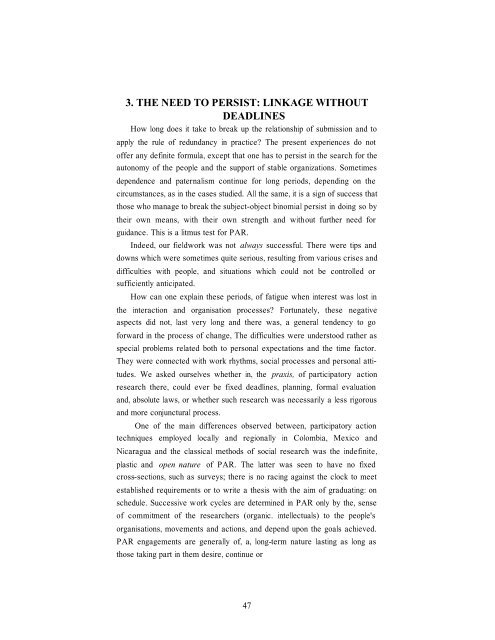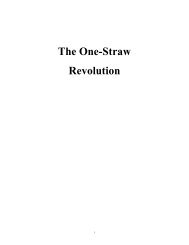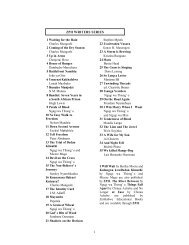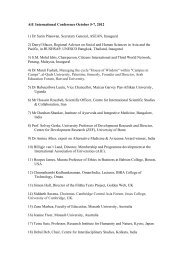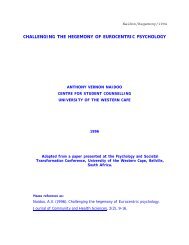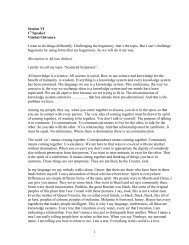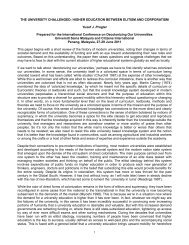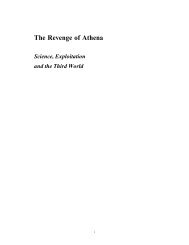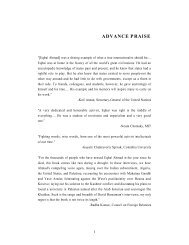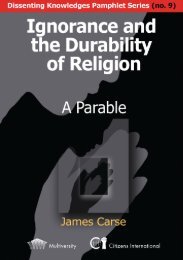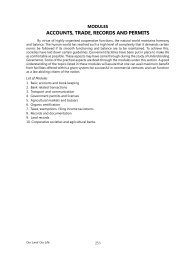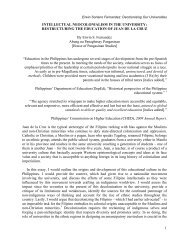Knowledge and People's Power - Multiworld India
Knowledge and People's Power - Multiworld India
Knowledge and People's Power - Multiworld India
- No tags were found...
Create successful ePaper yourself
Turn your PDF publications into a flip-book with our unique Google optimized e-Paper software.
3. THE NEED TO PERSIST: LINKAGE WITHOUTDEADLINESHow long does it take to break up the relationship of submission <strong>and</strong> toapply the rule of redundancy in practice? The present experiences do notoffer any definite formula, except that one has to persist in the search for theautonomy of the people <strong>and</strong> the support of stable organizations. Sometimesdependence <strong>and</strong> paternalism continue for long periods, depending on thecircumstances, as in the cases studied. All the same, it is a sign of success thatthose who manage to break the subject-object binomial persist in doing so bytheir own means, with their own strength <strong>and</strong> without further need forguidance. This is a litmus test for PAR.Indeed, our fieldwork was not always successful. There were tips <strong>and</strong>downs which were sometimes quite serious, resulting from various crises <strong>and</strong>difficulties with people, <strong>and</strong> situations which could not be controlled orsufficiently anticipated.How can one explain these periods, of fatigue when interest was lost inthe interaction <strong>and</strong> organisation processes? Fortunately, these negativeaspects did not, last very long <strong>and</strong> there was, a general tendency to goforward in the process of change, The difficulties were understood rather asspecial problems related both to personal expectations <strong>and</strong> the time factor.They were connected with work rhythms, social processes <strong>and</strong> personal attitudes.We asked ourselves whether in, the praxis, of participatory actionresearch there, could ever be fixed deadlines, planning, formal evaluation<strong>and</strong>, absolute laws, or whether such research was necessarily a less rigorous<strong>and</strong> more conjunctural process.One of the main differences observed between, participatory actiontechniques employed locally <strong>and</strong> regionally in Colombia, Mexico <strong>and</strong>Nicaragua <strong>and</strong> the classical methods of social research was the indefinite,plastic <strong>and</strong> open nature of PAR. The latter was seen to have no fixedcross-sections, such as surveys; there is no racing against the clock to meetestablished requirements or to write a thesis with the aim of graduating: onschedule. Successive work cycles are determined in PAR only by the, senseof commitment of the researchers (organic. intellectuals) to the people'sorganisations, movements <strong>and</strong> actions, <strong>and</strong> depend upon the goals achieved.PAR engagements are generally of, a, long-term nature lasting as long asthose taking part in them desire, continue or47


